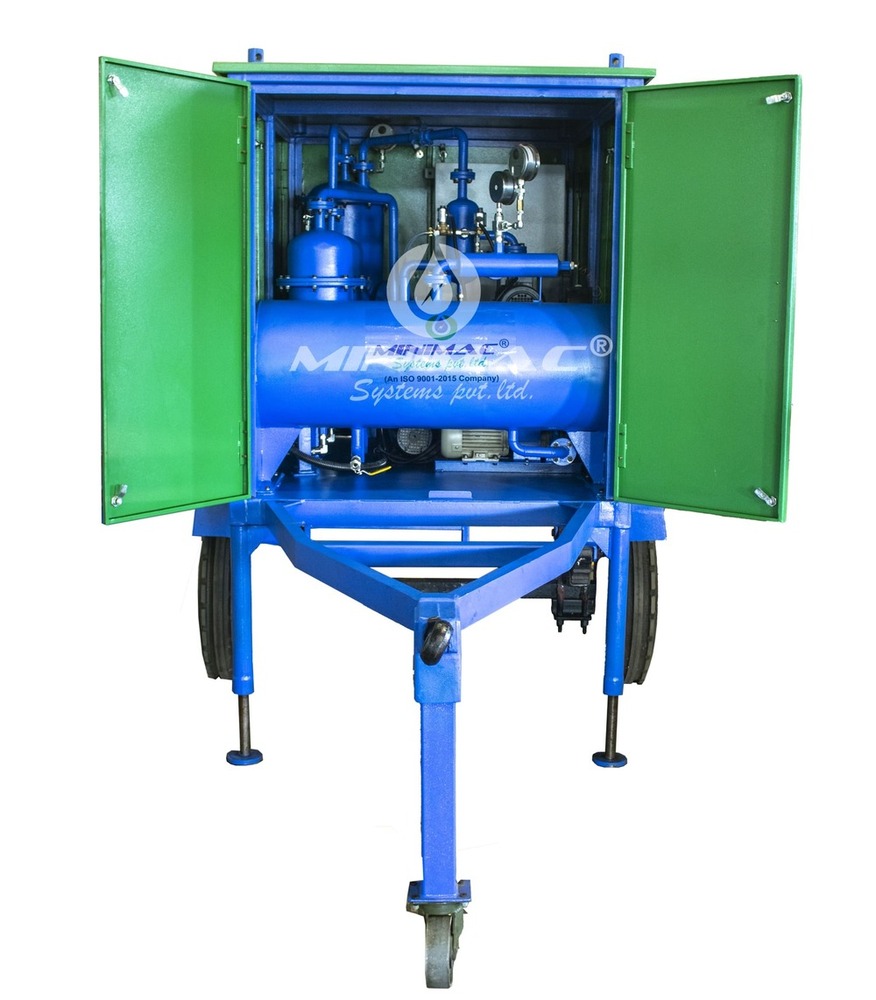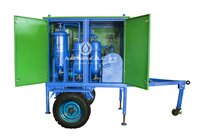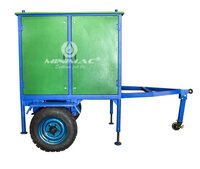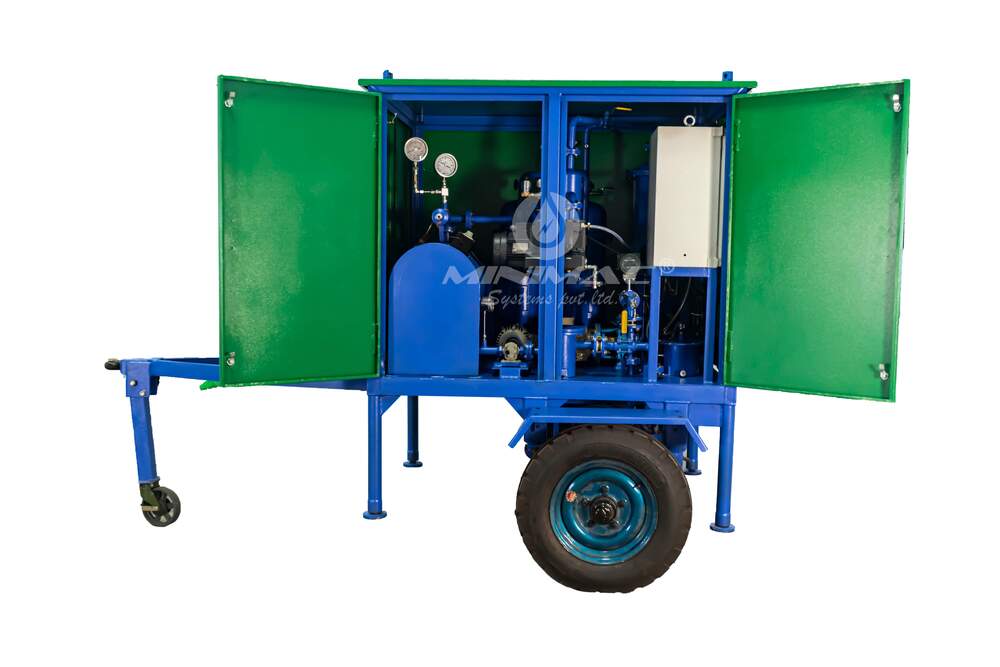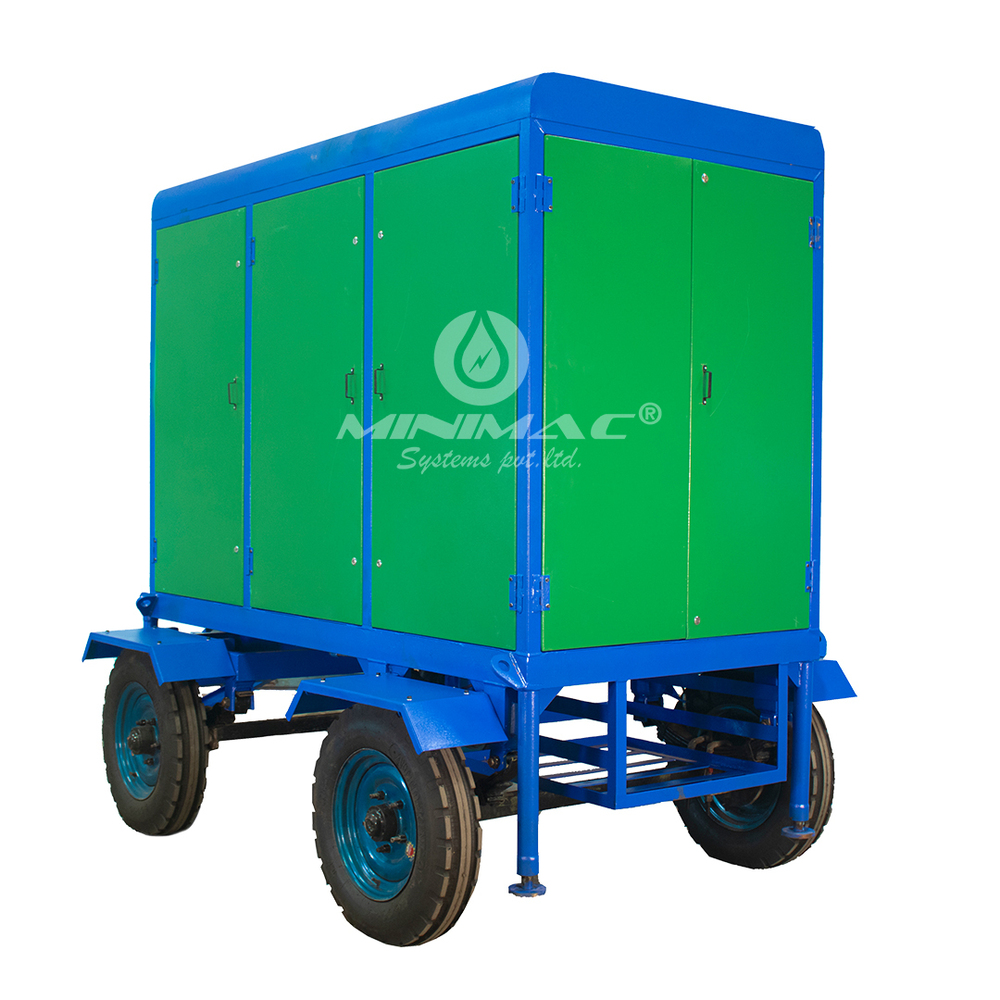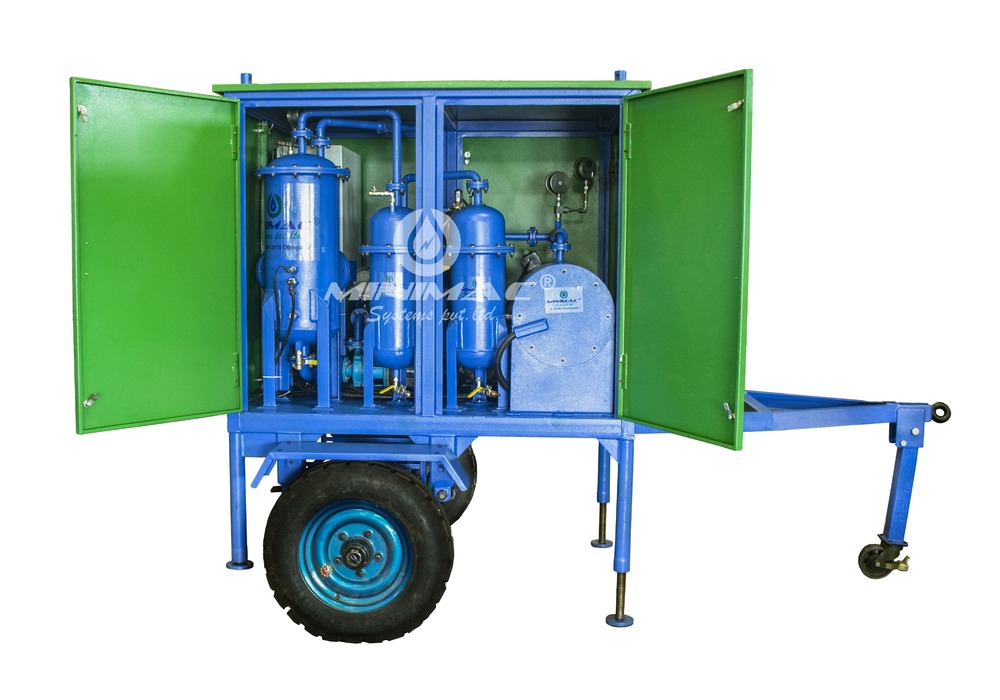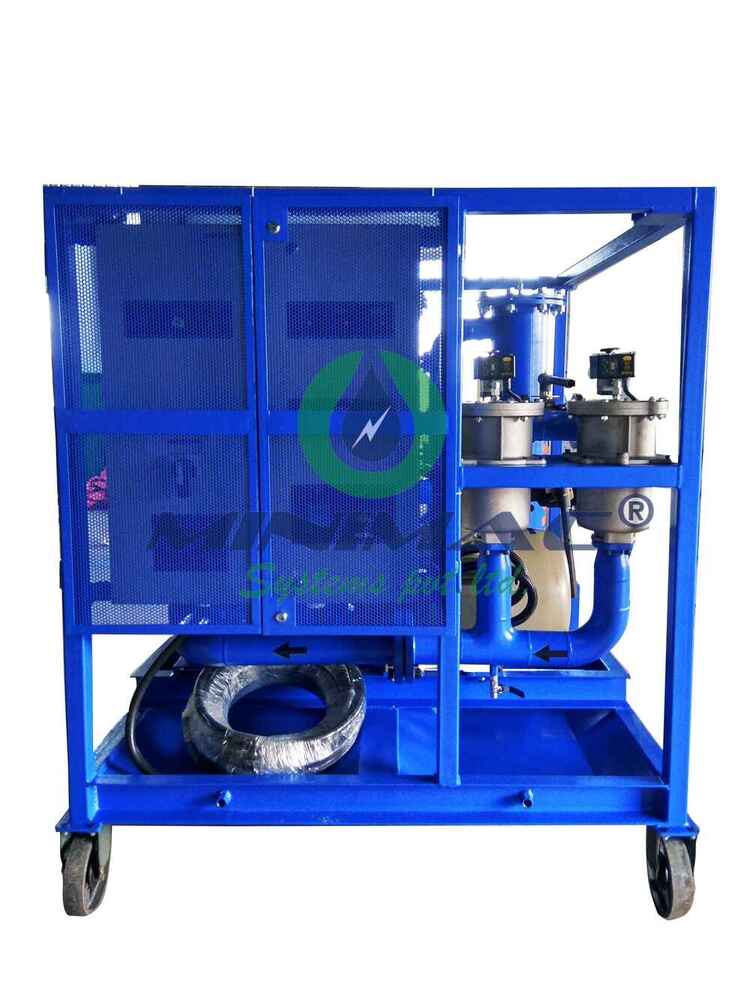Insulating Oil Filter Machine
Product Details:
- Color Customisable
- Usage Oil filtration
- Size Customisable
- Product Type Machine
- Type Machine Oil Purifier
- Automation Automatic
- Voltage 440 Volt (v)
- Click to View more
Insulating Oil Filter Machine Price And Quantity
- 1 Piece
- 250000 INR/Piece
Insulating Oil Filter Machine Product Specifications
- 12 Months
- 440 Volt (v)
- Oil filtration
- Customisable
- Machine
- Customisable
- Machine Oil Purifier
- Automatic
Product Description
Features of Transformer Oil Filtration:
Multi-Stage Filtration: It is an elaborate procedure consisting of steps like heating, degassing, dewatering, and fine filtration.
Portable Units:Easy to transport single units that can be taken to a specific location where filtration is required thereby causing little or no downtime.
High Efficiency:Effective since they can strip off water, gases, and particles to rejuvenate oil freshness.
User-Friendly Interface: These systems boast a user-friendly interface, featuring intuitive controls and automated operation for ease of use.
Durable Construction:Built to last, they are designed to withstand the harsh conditions often found in industrial settings.
Applications across industries:
Power generation plants“coal, gas, hydro, nuclear wind and, solar
Power utility plants
Power substations
Metallurgical fields
Railway Sector
Oil & gas industries CPP plants
Steel Plants
Coal & metal mines
Chemical sector
Automobile manufacturing
Industries that require an on-site transformer
Benefits of Transformer Oil Filtration:
It removes the moisture and impurities from the oil
It keeps the breakdown voltage of the transformer oil within the permissible limit
It increases the life of transformer oil as well as transformer
It can be operated while the transformer is in charged condition
It can protect the transformer from unplanned shutdown and heavy monetary losses
Types of oil which can be cleaned:
Transformer oil
Insulating oil
Key Consideration :
Oil Quality:Regular testing of oil quality to determine the need for filtration.
Equipment Compatibility:Ensuring the filtration system is compatible with the type of oil and transformer specifications.
Filtration Capacity:Selecting a system with adequate capacity to handle the volume of oil.
Operational Downtime:Minimizing downtime by choosing portable and efficient filtration units.
Maintenance:Regular maintenance of the filtration system to ensure optimal performance.
Conclusion:
In conclusion, transformer oil filtration is a vital maintenance practice that significantly enhances the performance, lifespan, and efficiency of transformers. By removing contaminants and revitalizing the oil, filtration ensures the smooth operation of electrical systems across various industries. Investing in a reliable transformer oil filtration system is a proactive step toward preventing costly maintenance, transformer failures, and environmental damage.

Price:
- 50
- 100
- 200
- 250
- 500
- 1000+

